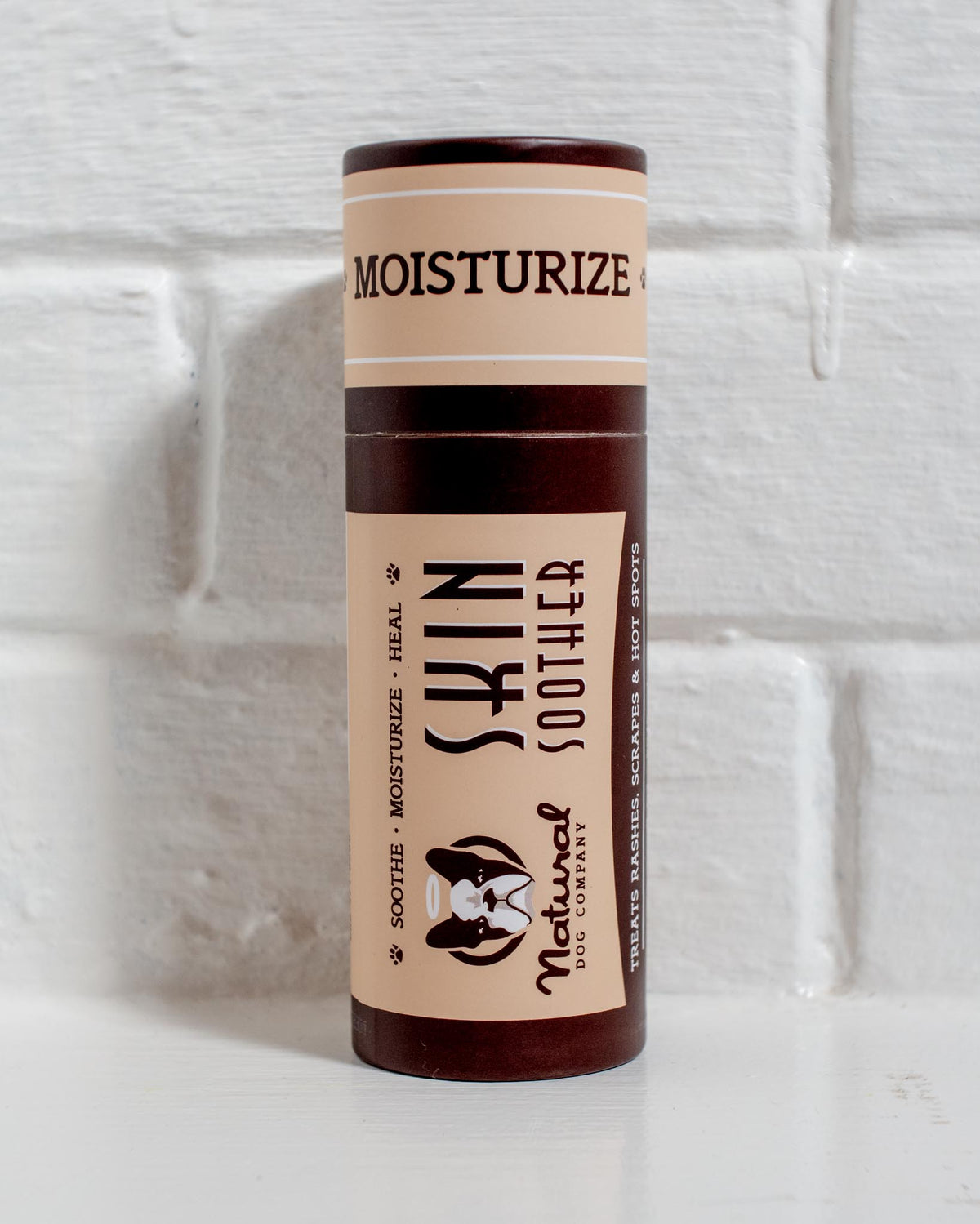Last Updated on June 18, 2025
Aloe vera gel is known to soothe and moisturize the skin effectively. Its natural properties can help restore and hydrate dry or irritated skin, making it a popular choice for skincare treatment.
Healthy and nourished skin is essential for a radiant and youthful appearance. However, factors such as environmental pollutants, weather conditions, and aging can take a toll on the skin, leaving it dry and dehydrated. Aloe vera gel is a natural remedy that offers soothing and moisturizing benefits, making it a versatile solution for various skin concerns.
Whether used on its own or as an ingredient in skincare products, aloe vera is known for its ability to provide deep hydration and relieve skin discomfort. By incorporating this natural treatment into your skincare routine, you can enjoy the rejuvenating effects of well-hydrated and glowing skin.
The Skin’s Natural Moisture Barrier
Understanding the skin’s natural moisture barrier is essential in maintaining healthy, vibrant skin. The skin’s natural moisture barrier, composed of natural oils and lipids, plays a crucial role in protecting the skin, preventing dehydration, and maintaining skin elasticity. Furthermore, understanding how environmental factors impact the skin’s moisture is vital in selecting appropriate treatments and skincare routines to soothe and moisturize the skin.
The Role Of The Skin’s Natural Oils
The skin’s natural oils, including sebum, play a critical role in maintaining the skin’s moisture barrier. Sebum, produced by the sebaceous glands, forms a protective layer on the skin’s surface, helping to prevent water loss and maintaining hydration. When the skin’s natural oils are stripped away due to harsh cleansers or environmental factors, the moisture barrier becomes compromised, leading to dry, irritated skin.
Impact Of Environmental Factors On The Skin’s Moisture
Environmental factors such as harsh weather, pollution, and UV radiation can significantly impact the skin’s moisture levels. Exposure to these elements can deplete the skin’s natural oils and disrupt its moisture barrier, leading to dryness, flakiness, and sensitivity. Understanding the effects of these environmental stressors is crucial in choosing skincare products and treatments that help replenish and protect the skin’s natural moisture barrier.
Harnessing The Power Of Hyaluronic Acid
When it comes to skincare, finding a treatment that effectively soothes and moisturizes the skin is paramount. One such powerhouse ingredient that has been making waves in the beauty industry is hyaluronic acid. This naturally occurring substance is renowned for its ability to lock in moisture and provide a hydrating boost for the skin, making it an ideal addition to skincare routines for those seeking plump, supple, and youthful-looking skin. Let’s delve into the science behind hyaluronic acid and understand how it works to retain moisture, thereby offering extensive skincare benefits.
The Science Behind Hyaluronic Acid
Hyaluronic acid, often referred to as HA, is a glycosaminoglycan— a substance naturally found in the human body. Its remarkable hydrating properties have made it a star ingredient in many skincare formulations, earning the reputation of being a hydrating powerhouse. HA molecules have a unique capacity to retain water, resulting in a plumping effect on the skin. This characteristic makes hyaluronic acid a popular choice in skincare products, backed by scientific research and acclaim from skincare experts.
How Hyaluronic Acid Retains Moisture In The Skin
Understanding the mechanism behind hyaluronic acid’s moisture-retaining abilities is essential to grasp its significance in skincare. Hyaluronic acid molecules hold an impressive capacity to attract and retain water, locking in moisture and preventing dehydration. This moisture-binding characteristic ensures that the skin remains well-hydrated, contributing to a supple, smooth, and radiant complexion. The ability of hyaluronic acid to maintain skin moisture levels makes it a sought-after ingredient in various skincare products, catering to individuals with diverse skin types and concerns.
Soothing And Moisturizing Treatments
When it comes to taking care of your skin, finding the right soothing and moisturizing treatments is key. Whether you’re dealing with dryness, irritation, or simply want to maintain soft and supple skin, using suitable treatments can make a significant difference in the overall health and appearance of your skin. From topical moisturizers to oils, balms, and lotions, there are various options to consider for hydrating and nurturing your skin.
Topical Moisturizers And Their Benefits
Topical moisturizers are an essential part of any skincare routine. They come in various forms, including creams, ointments, and serums, and serve the primary purpose of nourishing and hydrating the skin. These products contain a combination of emollients, humectants, and occlusives that work together to lock in moisture, improve skin texture, and provide a protective barrier against environmental stressors.
Emollients help to soften and smooth the skin, while humectants attract and retain moisture, and occlusives create a seal to prevent water loss. Using a topical moisturizer that suits your skin type can help in reducing dryness, relieving itching, and enhancing the overall appearance of the skin.
Oils, Balms, And Lotions For Skin Hydration
In addition to traditional moisturizers, oils, balms, and lotions are popular choices for enhancing skin hydration. Natural oils like argan, jojoba, and coconut oil are rich in essential fatty acids and are known for their nourishing and soothing properties. They can be applied directly to the skin or added to existing skincare products to boost their moisturizing benefits.
Balms, which are thicker and more concentrated than regular lotions, are ideal for targeting specific areas of dry or irritated skin. They often contain a blend of oils, beeswax, and botanical extracts, providing intensive moisture and protection for chapped or rough skin. Moreover, lotions, particularly those with hyaluronic acid, are effective at retaining moisture and are well-suited for daily use.

Credit: www.shopdogandco.com
Incorporating Healing Ingredients Into Your Skincare Routine
When it comes to maintaining healthy, glowing skin, it’s essential to incorporate healing ingredients into your skincare routine. By using natural ingredients known for their soothing and moisturizing properties, you can effectively nourish and protect your skin. Let’s explore the benefits of incorporating healing ingredients such as aloe vera and natural oils into your skincare regimen.
Aloe Vera And Its Soothing Properties
Aloe vera is a renowned natural ingredient celebrated for its exceptional soothing properties. Rich in vitamins, minerals, and antioxidants, aloe vera possesses anti-inflammatory and moisturizing benefits. When applied topically, it helps calm irritated skin, reduce redness, and promote healing. Incorporating aloe vera into your skincare routine can provide a welcoming relief for various skin conditions, such as sunburn, eczema, and acne.
The Benefits Of Incorporating Natural Oils Into Skincare
Natural oils are an excellent addition to any skincare routine due to their moisturizing and nourishing properties. When selecting natural oils for skincare, it’s important to consider ones such as argan oil, jojoba oil, and almond oil. These oils are rich in essential fatty acids and vitamins that deeply moisturize the skin, leaving it supple and hydrated. By using natural oils, you can help maintain the skin’s moisture barrier and protect it from environmental aggressors, preventing dryness and promoting a radiant complexion.
Eating For Radiant Skin
When it comes to achieving radiant, moisturized skin, what you eat plays a crucial role. The impact of diet on your skin health and moisture cannot be overstated. Including certain foods in your diet can promote skin hydration and health, leaving your skin feeling smooth, supple, and rejuvenated. Let’s take a closer look at the connection between diet and radiant skin.
The Impact Of Diet On Skin Health And Moisture
Your diet can significantly influence the condition of your skin. Consuming a balanced diet rich in essential nutrients is essential for maintaining optimal skin health and moisture levels. Nutrient deficiencies can lead to dryness, dullness, and a lack of elasticity in the skin. Therefore, prioritizing skin-nourishing foods is key to achieving a vibrant and hydrated complexion.
Foods That Promote Skin Hydration And Health
Include the following foods in your diet to promote skin hydration and health:
- Fatty fish: Rich in omega-3 fatty acids, fatty fish such as salmon and mackerel help maintain skin hydration and integrity.
- Avocados: Packed with healthy fats and vitamins C and E, avocados support skin hydration and protect against oxidative damage.
- Nuts and seeds: Almonds, sunflower seeds, and walnuts are excellent sources of nutrients like vitamin E, which nourish the skin and enhance moisture retention.
- Fruits and vegetables: Water-rich fruits and vegetables like watermelon, cucumber, and oranges provide essential hydration and vital nutrients for skin health.
- Hydrating beverages: Consuming ample water, herbal teas, and coconut water helps maintain adequate skin hydration from within.
Incorporating these skin-loving foods into your diet can work wonders in ensuring your skin remains well-moisturized and exudes a natural radiance.
Frequently Asked Questions Of What Treatment Soothes And Moisturizes The Skin?
What Are The Best Treatments For Soothing And Moisturizing The Skin?
To effectively soothe and moisturize the skin, incorporating natural ingredients like aloe vera, shea butter, and hyaluronic acid into skincare routines can be beneficial. These ingredients work to hydrate and nourish the skin, potentially reducing inflammation and providing a healthy glow.
How Can I Soothe Dry And Irritated Skin?
To soothe dry and irritated skin, utilizing gentle, fragrance-free moisturizers and incorporating products with anti-inflammatory properties can help. Look for ingredients such as colloidal oatmeal or chamomile to calm and hydrate the skin effectively.
What Treatments Are Suitable For Sensitive And Reactive Skin?
For sensitive and reactive skin, opting for products labeled as hypoallergenic and free from harsh chemicals and fragrances is recommended. Additionally, incorporating calming ingredients like calendula extract and ceramides can help soothe and protect sensitive skin.
Are There Specific Treatments To Help With Sun-damaged Skin?
To address sun-damaged skin, incorporating antioxidants like vitamin C and vitamin E into skincare regimens can help combat free radical damage and promote skin repair. Additionally, using products with hyaluronic acid and aloe vera can aid in replenishing moisture and soothing sun-stressed skin.
What Role Do Natural Oils Play In Skin Soothing And Moisturizing Treatments?
Natural oils, such as jojoba oil, argan oil, and rosehip oil, can offer excellent skin-soothing and moisturizing benefits. These oils contain nourishing properties that can help restore the skin’s barrier, lock in moisture, and provide a healthy, radiant complexion.
Conclusion
Attending to our skin’s moisture needs is crucial for healthy, supple skin. Choosing hydrating treatments that soothe and nourish the skin can make a noticeable difference in its appearance and feel. By incorporating these treatments into your skincare routine, you can achieve a radiant and youthful complexion.


